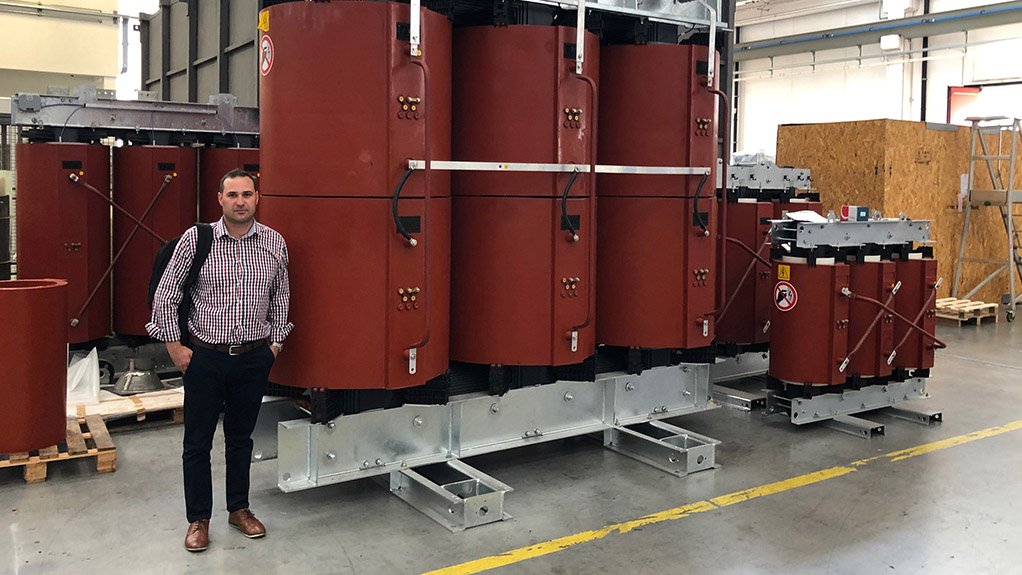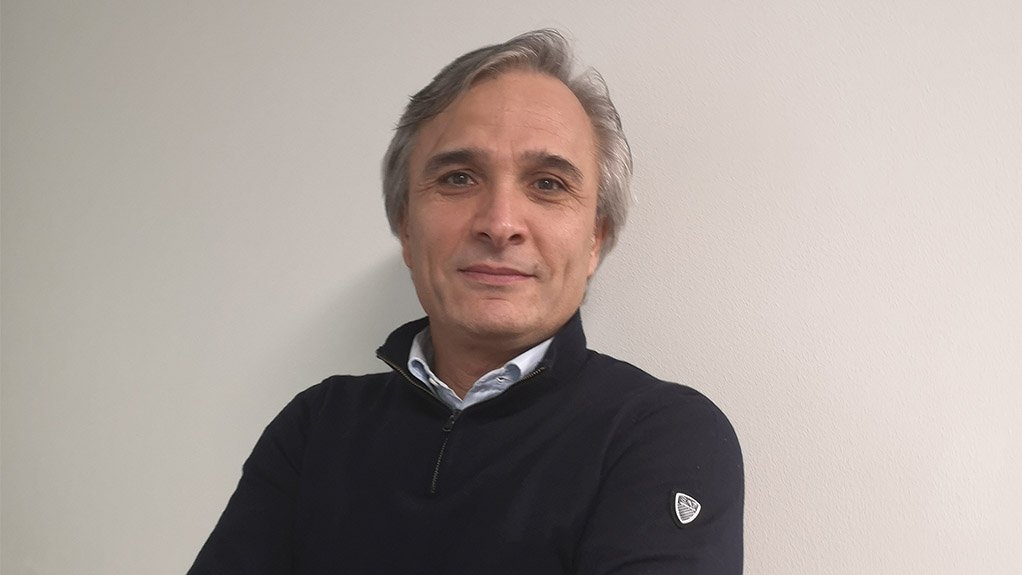Partnership improves dry-type transformers access in Africa



DAVID CLAASSEN Dry-type transformer technology is safer and requires less maintenance
ROBERT DERI Well-established connections between South Africa and the EU make collaboration between South Africa and Italy easy and strong
Access to dry-type transformer technology has been boosted throughout Africa, following the partnership of South African transformer supplier Trafo Power Solutions with Italian transformer manufacturer TMC Transformers at the end of 2018.
“The business prospects for TMC in Africa are quite good and we note that there are many different signals or business indexes that have shown a plan for investment. In many of these business sectors, there is a demand for specialised dry-type transformer technology suitable for different ambient conditions and capable of high performances,” says TMC Transformers business development manager Robert Deri.
South Africa, and Africa in general, are late adopters of dry-type transformer technology. However, there is an increase in demand for, and uptake of, the technology among a variety of applications, which points to a growing market across Africa, Trafo Power Solutions MD David Claassen points out.
This increase in demand might be attributable to the cost of dry-type transformer technology, which has decreased over the past ten years, while the technology has improved. The technology is also more environmentally sustainable since it does not rely on fossil fuels – oil – to operate.
Claassen expects these factors will contribute to a continuing upward trend in dry-type transformer demand for the foreseeable future.
Although dry-type transformers are used in a variety of applications, including at mines, oil refineries, factories, hospitals, pump stations and hotels, Claassen says the most significant area of growth has been new data centres, which run particular loads and have stringent safety requirements.
The two most notable benefits of using dry-type transformer technology instead of traditional oil-filled transformers is that they are safer and require less maintenance.
Oil-filled transformers are at risk of catching fire – since oil is highly flammable – which could originate from an outside source or from a short circuit within the transformer. They also require regular maintenance and are prone to leaks.
By comparison, dry-type transformers require little maintenance, except for perhaps removing dust build-up about once a year, and there is no risk of fire because there is not any oil inside such transformers.
Space is at a premium in South Africa, owing to the country’s exponential urbanisation growth, particularly around major metropolitan areas. This has resulted in more high-rise buildings and more highly condensed areas.
Claassen says these space constraints mean that it is increasingly more sensible to install transformers in the basements of buildings rather than outdoors.
“It makes technical sense to install a dry-type transformer, rather than an oil-filled transformer, in the basement of a building because it is so much safer and it significantly reduces the risk of fire to the building and its inhabitants,” he explains.
Meanwhile, Claassen mentions that many of the locations where transformers are installed are remote and difficult to reach, either because of the extreme distance to site, poor transport infrastructure or both.
Moreover, in South Africa, as well as in the rest of Africa, maintenance is a challenge because there are a limited number of qualified and capable maintenance technicians. Maintenance schedules are also not adhered to because of improper management.
In addition, Africa’s exposure to extreme heat, dust and rain takes a toll on equipment and can, consequently, speed up maintenance schedules significantly.
The European Union (EU) and South Africa – together with Botswana, Lesotho, Mozambique, Namibia and Swaziland – signed the Southern African Development Community Economic Partnership Agreement (SADC EPA), which regulates trade between the two regions, in June 2016.
Under the SADC EPA, the EU has fully or partially removed customs duties on 98.7% of imports from South Africa, while guaranteeing full free access for the rest of the signatory countries. Under this agreement, the EU remains South Africa's largest trade and investment partner.
Deri says the well-established connections between South Africa and the EU make collaboration between South Africa and Italy, an EU member, easy and strong – which has allowed for the successful partnership between Trafo Power Solutions and TMC Transformers.
Deri points out that one of the main reasons behind partnering with Trafo Power Solutions was its extensive experience with electromechanical technology and products in African markets.
“Trafo Power Solutions understands the market sector and knows the existing and potential customer base. It has the skills set to manage customer requirements, and the capability and resources to support the customer– from the feasibility study stage and the execution design stage to the delivery, installation and commissioning stage,” Deri explains.
He adds that this is critical in ensuring that customers receive the necessary support with respect to any aftersales activity.
Article Enquiry
Email Article
Save Article
Feedback
To advertise email advertising@creamermedia.co.za or click here
Press Office
Announcements
What's On
Subscribe to improve your user experience...
Option 1 (equivalent of R125 a month):
Receive a weekly copy of Creamer Media's Engineering News & Mining Weekly magazine
(print copy for those in South Africa and e-magazine for those outside of South Africa)
Receive daily email newsletters
Access to full search results
Access archive of magazine back copies
Access to Projects in Progress
Access to ONE Research Report of your choice in PDF format
Option 2 (equivalent of R375 a month):
All benefits from Option 1
PLUS
Access to Creamer Media's Research Channel Africa for ALL Research Reports, in PDF format, on various industrial and mining sectors
including Electricity; Water; Energy Transition; Hydrogen; Roads, Rail and Ports; Coal; Gold; Platinum; Battery Metals; etc.
Already a subscriber?
Forgotten your password?
Receive weekly copy of Creamer Media's Engineering News & Mining Weekly magazine (print copy for those in South Africa and e-magazine for those outside of South Africa)
➕
Recieve daily email newsletters
➕
Access to full search results
➕
Access archive of magazine back copies
➕
Access to Projects in Progress
➕
Access to ONE Research Report of your choice in PDF format
RESEARCH CHANNEL AFRICA
R4500 (equivalent of R375 a month)
SUBSCRIBEAll benefits from Option 1
➕
Access to Creamer Media's Research Channel Africa for ALL Research Reports on various industrial and mining sectors, in PDF format, including on:
Electricity
➕
Water
➕
Energy Transition
➕
Hydrogen
➕
Roads, Rail and Ports
➕
Coal
➕
Gold
➕
Platinum
➕
Battery Metals
➕
etc.
Receive all benefits from Option 1 or Option 2 delivered to numerous people at your company
➕
Multiple User names and Passwords for simultaneous log-ins
➕
Intranet integration access to all in your organisation


















